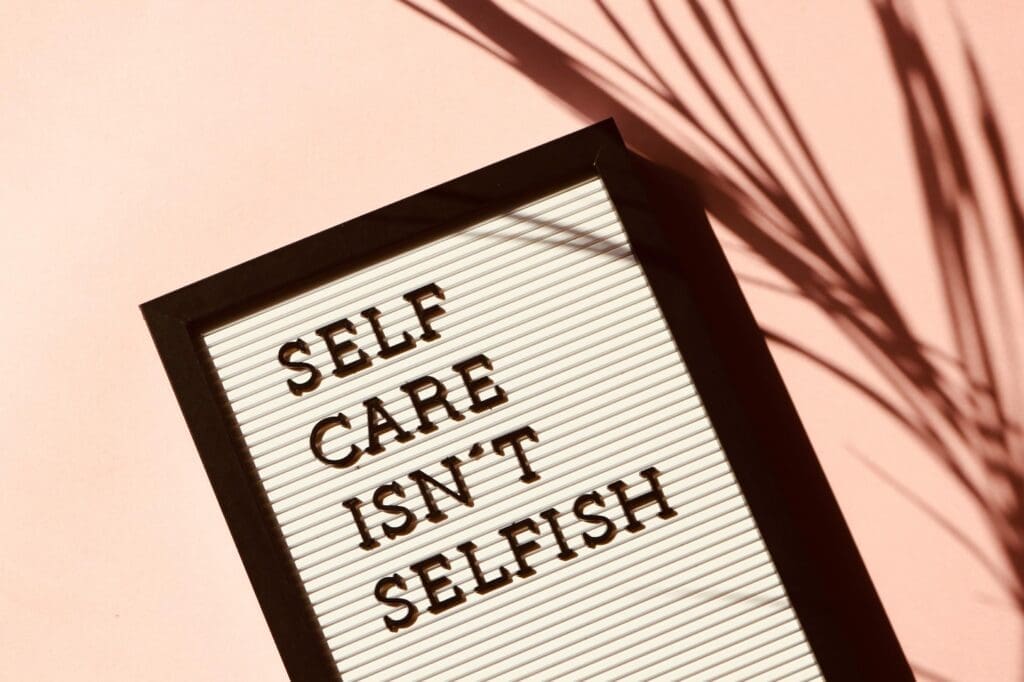Self-love can be a difficult skill to practice. It is a skill that many of us were never taught. For some, the struggle stems from a lack of tools, support, or guidance. Recognizing what is standing in the way of your self-love is the first step toward healing. When you begin to identify and challenge those barriers, you open the door to a deeper sense of freedom: freedom from societal expectations, persistent anxiety, and the weight of negative self-talk.
****
What Is Self-Love

Self-love can take many forms, but it means showing compassion toward yourself. It can also mean recognizing your worth, acknowledging your strengths, and appreciating who you are. Despite its importance, self-love is often misunderstood. Some mistakenly equate it with selfishness or vanity, when in reality, it is about self-acceptance, not self-absorption.
While self-love is not the same as self-esteem or confidence, it plays a crucial role in shaping how you see yourself. It serves as a foundation for inner validation, allowing you to affirm your value without needing constant approval from others.
Why Practicing Self-Love Feels Difficult
Practicing self-love can be incredibly challenging, especially in a world full of external pressures. Societal expectations such as the pressure to look a certain way, can make it difficult to embrace yourself fully.
Negative self-talk often reinforces harmful, internalized beliefs, steering you away from self-love and toward self-criticism. Over time, these patterns become deeply ingrained, making it harder to break free from them.
Additionally, past trauma and unresolved attachment wounds can create emotional barriers that complicate the journey toward self-love. These deeper layers often require compassion, patience, and in some cases professional support to heal.
The Obstacles People Face When Cultivating Self-Love

Many obstacles can interfere with a person’s self-love journey. One major barrier is perfectionism. Perfectionism is the belief that you must always do better, do more, or achieve flawlessness to be considered worthy. This mindset creates a constant sense of inadequacy, making it nearly impossible to fully accept or love yourself. Since perfection is unattainable, the chase only deepens feelings of unworthiness.
Another common barrier is the fear of vulnerability. Accepting yourself requires courage. It means facing your flaws, insecurities, and deeply rooted beliefs shaped by societal expectations. This level of honesty can feel intimidating, especially in a world that often rewards image over authenticity.
Furthermore, self-comparison is a powerful force that can derail self-love. In a society fueled by social media, it is easy to lose sight of your own worth. Comparing yourself to others not only distorts your self-image, but it also creates distance between who you are and who you think you should be, ultimately making self-love harder to cultivate.
How To Start Practicing Self-Love

Practicing self-love often begins with small, consistent daily habits. Simple practices such as journaling, repeating affirmations, and setting healthy boundaries can gradually build a stronger sense of self-worth. These actions can create space for reflection, clarity, and self-respect.
Deeper work, such as therapy, can also be a powerful tool on your self-love journey. Therapy offers a safe space to explore past wounds, learn self-compassion techniques, and reframe negative thought patterns. With the guidance and support of a therapist, you can begin to shift your inner dialogue and nurture a more loving relationship with yourself.
How Beneficial Self-Love Can Be In One’s Life

Self-love can profoundly benefit your life. When you cultivate a healthy, compassionate relationship with yourself, it naturally strengthens the way you connect with others. It fosters healthier boundaries, deeper empathy, and more authentic relationships. Self-love also builds emotional resilience. It helps you navigate life’s challenges with greater confidence and inner stability. Overall, it contributes to a greater sense of fulfillment and lasting happiness.




